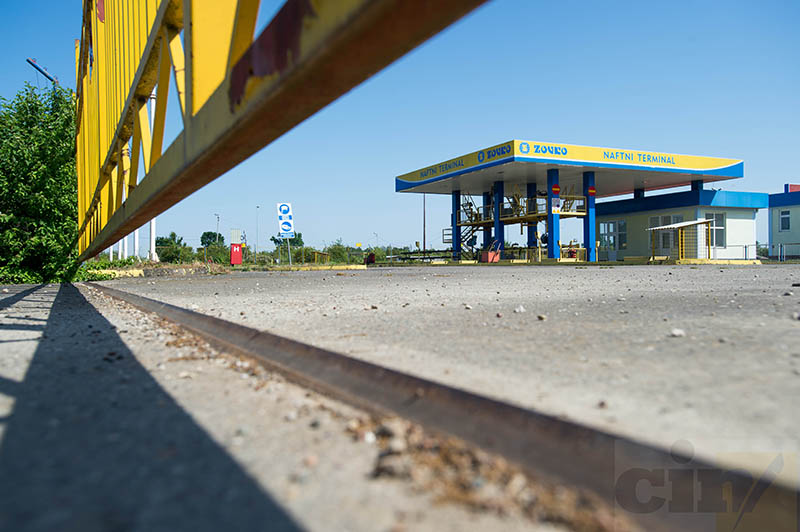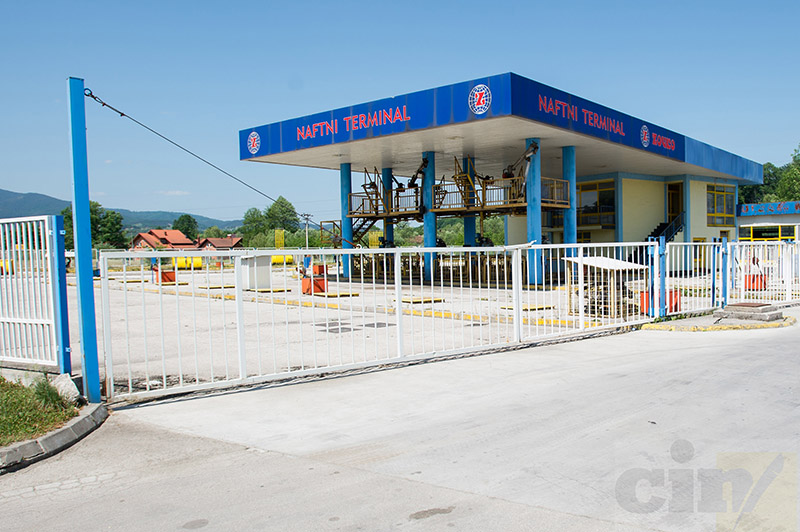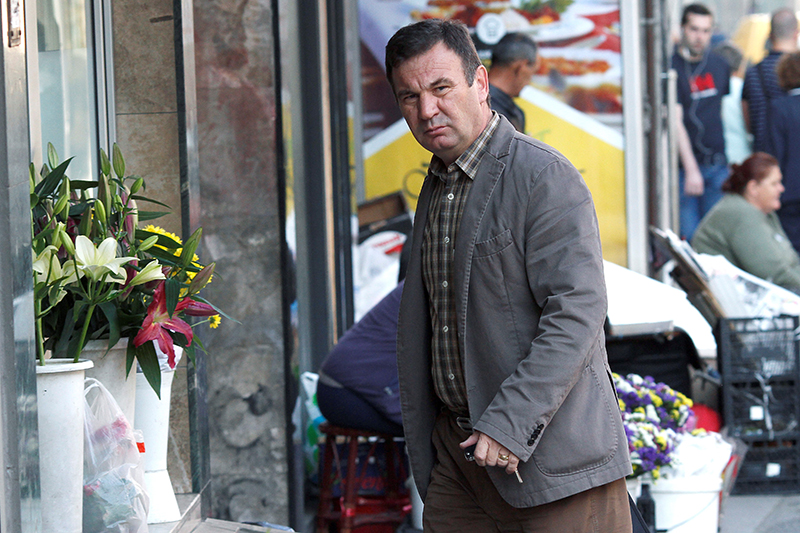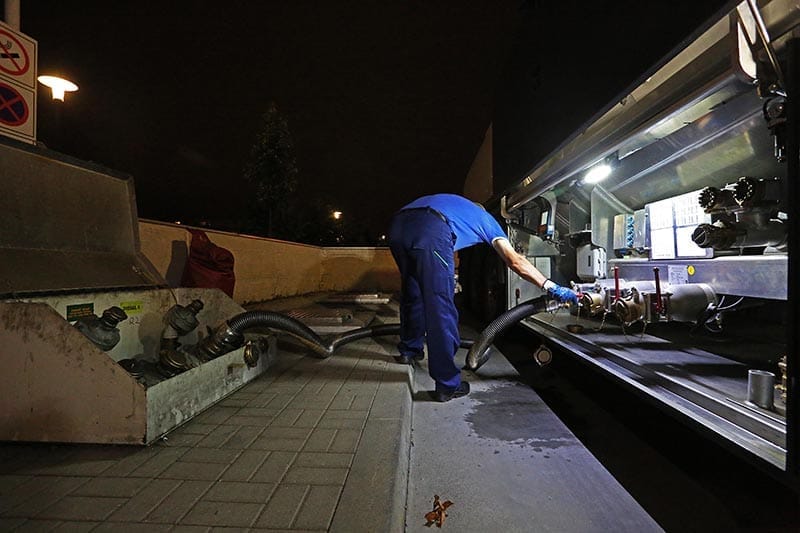Over the past two years Zovko Oil, a privately owned oil trading firm, has mismanaged 6.4 million KM worth of fuel intended to help the public in times of floods, earthquakes, war and other disasters.
About 2.9 million liters of diesel, gasoline and heating oil have disappeared from the firm’s terminals, while the Federation of Bosnia and Herzegovina Stockholding Agency (FBiH) which owns it has done nothing to stop the theft or get repaid.
The sequence of events, as reconstructed by the reporters from the Center for Investigative Reporting in Sarajevo (CIN), indicates that the fuel disappeared in a planned manner. The firm used less than half of the fuel in 2010, the same year when the goods were stocked. Even though Zovko was not adding back what it had used up, the Agency continued to store its remaining fuel with the same firm. Before the end of a two-year contract, the Agency’s director Tončo Bavrka signed an annex prolonging the stocking contract for an additional three months. And during that short period, Zovko Oil used up the remainder of the oil.
Bavrka failed to take legal steps to halt the theft and did not inform law enforcement officials. Instead, while the fuel was trickling away from the terminals, Bavrka tried to convince the FBiH government to accept a suspicious plan to swap a terminal belonging to the Zovko Oil group in exchange for the missing fuel.
The government did not accept the swap as it grew suspicious about the assessed value of the terminal. It will be hard now to recover the full debts because Zovko filed for bankruptcy.

Terminal for Debt
The FBiH Stockholding Agency purchases and stores fuel, food, drugs and other staples for use in case of war, natural disasters or sudden rises in prices. The Agency has only one warehouse so it stocks goods mainly in privately owned warehouses. It oversees the quality and quantity of goods and is supposed to prevent theft. However, the Agency does not inspect warehouses and it accepts weak guarantees for goods, which opens the floodgates for theft.
Even though the information about the amount and place of warehousing of intervention storage is confidential, CIN reporters uncovered the extent of the fuel that went missing.
Zovko Oil belongs to Marinko Zovko and together with the firms Zovko Auto and Zovko Insurance makes up the Zovko group.
Based on a bidding contract, the fuel was stored in the firm’s underground tanks in 2010. Slightly more than half of it was put into an oil terminal in Goliješnica near Žepče in mid-Bosnia for two years. The rest was stored for perpetuity in Orašje in the north of the country.
The fuel transported to Orašje was nearing its shelf life and was declining in quality, so the Agency approved selling it on the market and replacing it with new fuel by mid-December of 2010. The fuel was used up, but not replaced by the deadline. The Agency then filed a lawsuit against Zovko with the Municipal Court in Sarajevo to recoup damages.
In October 2011, the court ruled that Zovko had to return the oil within 30 days. However, this did not happened. At the firm’s request, the Agency extended the deadline to Jan. 23, 2012 but the fuel was not returned by then either.
After this, the Zovko Oil management informed the Agency that they were unable to replace the fuel, and offered its Orašje terminal in exchange for a write-down of the debt. Director Bavrka relayed the proposal to the FBiH government which ordered the Agency to hire forensic assessors to assess the value and prepare a swap proposal.
Those experts assessed the value of the terminal at to 6.77 million KM. The assessment was sent to the FBiH government at the end of May with a note that the debt will be paid by another Zovko group firm.
Since the terminal’s value was double the worth of the used up oil, Bavrka suggested the government buy the terminal for cash, while Zovko would have an obligation to return 1.27 million liters of oil.
Contract Prolonged Until They Took It All
While it tried to get back the debt for the oil, the Agency still kept 1.63 million liters of oil in the Zovko Oil terminal in Goliješnica. Bavrka told CIN that business dealings with Zovko continued on the recommendation of his Agency staff in 2011. Bavrka refused to allow interviews with his staff saying only he is authorized to give public statements.
According to documents CIN collected, Agency’s staffers, in fact, recommended that Bavrka seal the Goliješnica terminal at the end of 2011 and transfer the remaining fuel to another location. They suspected that Zovko was trying to give away this terminal to its connected firm Zovko Auto, which was against the contract. The fuel has never been transferred, while Zovko Oil denied the suspicions. They turned out to be true several months later.
In the beginning of the year, the Agency started preparations for putting out a bid to select a firm which would transport and store fuel from Goliješnica as the contract with Zovko Oil was due April 20, 2012.
However, the Agency was late with its working program for that year and setting aside a budget for hiring of a tank and transport of goods, so a bid was not put out until April 16. There was not time to choose a new storage operator before the existing contract with Zovko was to expire. For this reason, Bavrka extended the storage deadline for another three months that is until July 2012.
Now it was only left to find a firm to transport the fuel out of the existing tank to its new destination. At a document which his assistants sent to him setting the terms for a tender, Bavrka made a printed note that this bid might not be needed. The intended recipients of this message were the Agency’s officers, but the director stated no reasons why they should forsake this tender, which meant that the oil would remain in the Zovko Oil terminal.

At the bid, the terms for storing Goliješnica oil were met by Zovko Auto and by a Sarajevo firm, Hifa-Petrol. The Sarajevo firm was chosen.
Zovko Auto offered the Goliješnica terminal where the fuel had already been stored by way of the contract with Zovko Oil. According to the terms of the contract, it is not legal to offer a warehouse to another firm while an existing contract was still in force. The Agency’s officers caught this and called on director Bavrka to set up a commission to seal the tanks with the remaining oil. They also proposed that the oil be transported as soon as possible to save it.
A three-member commission, together with the representatives of a Mostar-based auditor Herkon went to Goliješnica on May 31 and established that Zovko Oil had started to pump out the oil without approval. Commission members informed Bavrka that they could not measure how much fuel remained in the tanks because the fuel was constantly being pumped out. They told him again that he should act in accordance with the Law on the FBiH Stockholding Agency and an accompanying Ordnance on Rules of Storage and as soon as possible take out the remaining fuel into another warehouse and inform the inspection and law enforcement agencies.
On the day of the audit, Zovko Oil filed a request for the breach of the contract and the annex without further explanation and pointed to the fact that the period of notice lasted 90 days which meant that it could keep fuel during that time.
At the Agency’s consultation exercise, Bavrka decided with his staff that the oil should be hastily transferred into the warehouse of Hifa-Petrol, but the firm refused to take on the goods saying that this would hurt its good relationships with Zovko Oil.
This let Zovko Oil continue to pump out the publicly owned fuel reserves without interruption.
An Attempt to Buy Unnecessary Terminal
On June 11, 2012, Bavrka sent a memo to the FBiH government about a possibility of coming to terms with the debt of Zovko Oil, but he omitted the fact that the firm had started spending the remaining oil in Goliješnica and that the contract was unilaterally terminated.
He also told the government that Zovko Oil offered a new proposal for oil which it spent without authorization in Orašje two years earlier. It suggested again that the government buy the terminal, which meanwhile was mortgaged for 1.5 million KM.
The documents show that a Grude-based businessman Vlatko Grizelj loaned it the sum.
Zovko Oil proposed that from the assessed value of 6.77 million KM, 3.2 million KM be deducted for debt incurred by using up oil. The government would then buy back the mortgage and the remainder of 2 million would be wired to Zovko Oil’s accounts or the government would give up on its claim on the fuel in Goliješnica.

Bavrka said that the accounts of Zovko Oil were frozen and that the government was faced with a take it-or-leave it proposal. He concluded that this was a good investment and that Zovko Oil’s offer should be accepted.
However, senior officials from the FBiH government rejected the plan. According to the then finance minister Anto Krajina, the terminal was overvalued, while the then prime minister Nermin Nikšić said that the FBiH did not need such a facility.
Nikšić said that they gave the Agency the go-ahead to enter negotiations on the debt swap because they wanted to see what was that all about. “However, the more we talked about it, the deeper we dug, the more wrong-doing was uncovered,” said Nikšić.
Two days later, instead of accepting the plan, the FBiH government asked the FBiH Inspection Affairs Authority to check the goods in the Agency’s warehouses. Nikšić told CIN reporters that they ordered the inspection because they were tipped that the Agency’s warehouses were empty, even though on paper they should’ve been housing goods. He added that they were not satisfied with inspections the Agency carried out.
A day after the session of the FBiH government, Zovko Oil wrote to the Agency that it had spent all 1.63 million liters of fuel from the Goliješnica terminal. It said that this was done because it had counted on reaching a deal about the sale of Orašje terminal and figured the fuel would be factored into the price of the terminal.
The commission from the FBiH Agency also found, following its inspection of the terminal, that the fuel was gone. They wrote that Kasim Redžić, director of Zovko Oil, said that the fuel was used up without the approval or knowledge of the Agency. Bavrka said that after this admission, it was not necessary to involve the Financial Police as the Law on the FBiH Stockholding Agency and other by-laws called for.
Company owner Marinko Zovko told CIN that he was unaware of what happened. Director Redžić said he did not want to answer reporters’ questions and would explain himself before the court.
Following these events, the Agency filed a lawsuit against Zovko in July 2012. It has never recouped the damages.
At the beginning of last year, Zovko Oil filed for bankruptcy. The Agency is due to receive part of its claims worth 5.9 million KM. However, chances are that it will only get a fraction of what it’s owed. Zovko Oil’s assets are worth 14 million KM, while debts are nearly 2.5 times bigger.
Even though it was not recovering what was lost, the Agency attempted to purchase new oil. CIN learned that during the negotiations for the exchange of debt for the terminal, Bavrka proposed that the FBiH government approve money to buy new oil supplies because the current ones were insufficient.
The former finance minister Krajina told CIN that the government did not approve the additional payments. “The prime minister and I said in jest: ‘Are we going to store it with the same storage men?”







